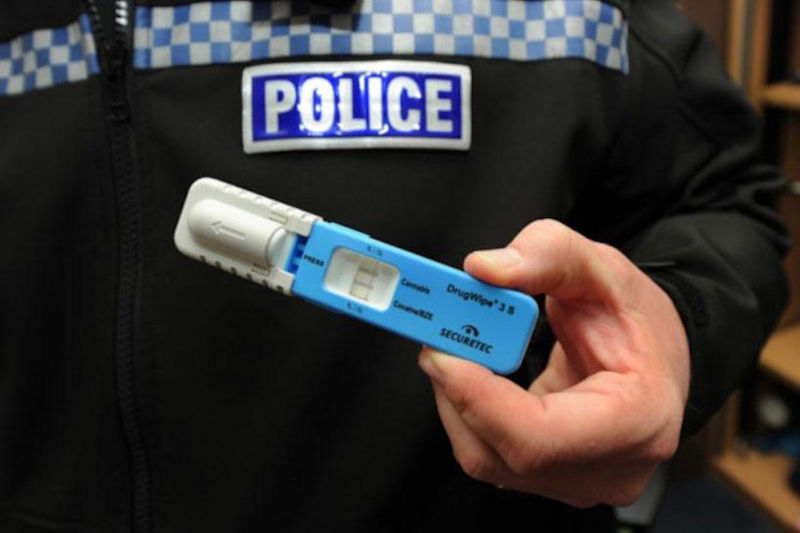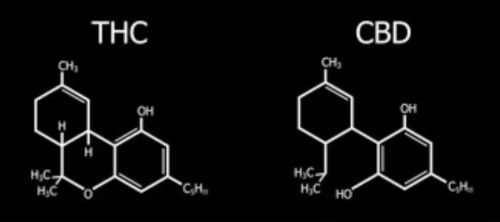
Despite the enormous success of CBD among the population in recent years, several questions remain unclear regarding its consumption and the laws that govern it. This is also the case for the relationship between this cannabinoid and the traffic law, and moreover, the salivary tests and traffic controls. So what do you need to know about CBD and saliva tests?
Differentiate CBD from THC
First, it is important, if we talk about saliva tests, to review the difference between THC and CBD. These active agents are both molecules coming from the cannabis plant. However, it is important to point out that they are very different from each other, just like the more than 130 cannabinoids present in the cannabis plant. Although cannabidiol and tetrahydrocannabinol are composed of the same number of atoms, they are far from sharing the same atomic alignment within their respective genetic codes. Moreover, THC is derived from the cannabis plant, unlike CBD which is derived from the hemp plant. THC is probably the best known cannabinoid active agent. It has long been demonized by many countries for its psychotropic effects and the dependence it creates when consumed. A sad reputation which is still illegal in most of them. Like in France for example, and this for many years. Some countries, such as Canada, the Netherlands and some American states, have decided to legalize its recreational use for some years now. Banned in most European countries, cannabis is only available on the black market and is not, in any case, confronted with an official marketing framework.

On the other hand, CBD comes straight from the hemp plant. There are two species, the male and the female plants. The flowers of CBD for example, are produced by the female plants and contain a minimal rate in THC, which was enough to authorize and justify their marketing by the Commission of the European Union. It also exists in the form of CBD resin, CBD oil, electronic cigarettes, CBD cosmetics, CBD honey or CBD infusions. Unlike THC, cannabidiol will not endanger your mental or physical health. It is perhaps even quite the opposite since we discover him a little more each day of multiple therapeutic and medicinal virtues. Moreover, each finished product CBD intended for the marketing are strictly controlled, and this, throughout its chain of production. It is in this way that the actors of its industry can maintain the famous legal THC rate fixed at 0,2 %, as required by the law. CBD, being non-addictive, does not see its name on the list of narcotics. CBD products are becoming more and more popular with consumers every month.
What saliva tests can detect
A growing success therefore, which raises however many questions as for its management. In particular, when we come to the subject of salivary tests, most of the time carried out by the forces of order in case of road control. The purpose of these tests is to indicate to the police if the driver of the vehicle is under the effects of a drug, and thus avoid that he puts his life as well as that of others in danger. These tests can indicate the presence of several drugs in an organism. Among them, cannabis, and more precisely THC, hence the importance of the distinctive reminder between cannabidiol and tetrahydrocannabinol. Crack, cocaine, amphetamines and opiates are also concerned. An individual positive to the salivary test will see this last indicated a blue color to the officer in charge of the road control. He risks in case of positive result, up to 5000 euros of fine, two years of prison and a withdrawal of his driver’s license which can go until 2 years.
Indeed, THC can cause various psychic disorders as well as alter certain perceptions of reality, such as our reactivity for example. This can often tend to alter our reflexes. Hence the fact that the consumption of cannabis is strictly forbidden when driving. CBD does not present any of these inconveniences, especially since in each of its products, its THC content is kept below the legal limit set at 0.2% THC. It would then be very surprising to be positive to a salivary test if one is satisfied to consume a CBD product in a regular way as well as reasoned. Even so, there are still small chances, especially if the driver’s cannabidiol consumption turns out to be regular and significant. In this case, you can ask the authorities to perform a urine or blood test at the police station, to indicate the exact level of CBD in your body.
But not too much worry either since CBD, not being considered a drug, is not a substance necessarily sought by the police during a control. But to put all the chances on your side to avoid a positive salivary test, We advise you to manage your CBD consumption well and not to abuse it. Especially when you know that you must then take the road, the traces of THC, as minimal as they are, remain several hours in the blood and saliva.
Last but not least, CBD vaporizers, the latest technological toys with built-in batteries produced by the vape world, are the safest way to avoid high levels of CBD in the blood, and therefore THC. Thanks to the “vapes”, their effects and presence in the blood are quick to manifest, but also dissipate much faster than with other modes of consumption, such as infusions or sublingual oils for example. This reduces the chances of finding yourself with a positive salivary test during a road check when you are only consuming CBD.
